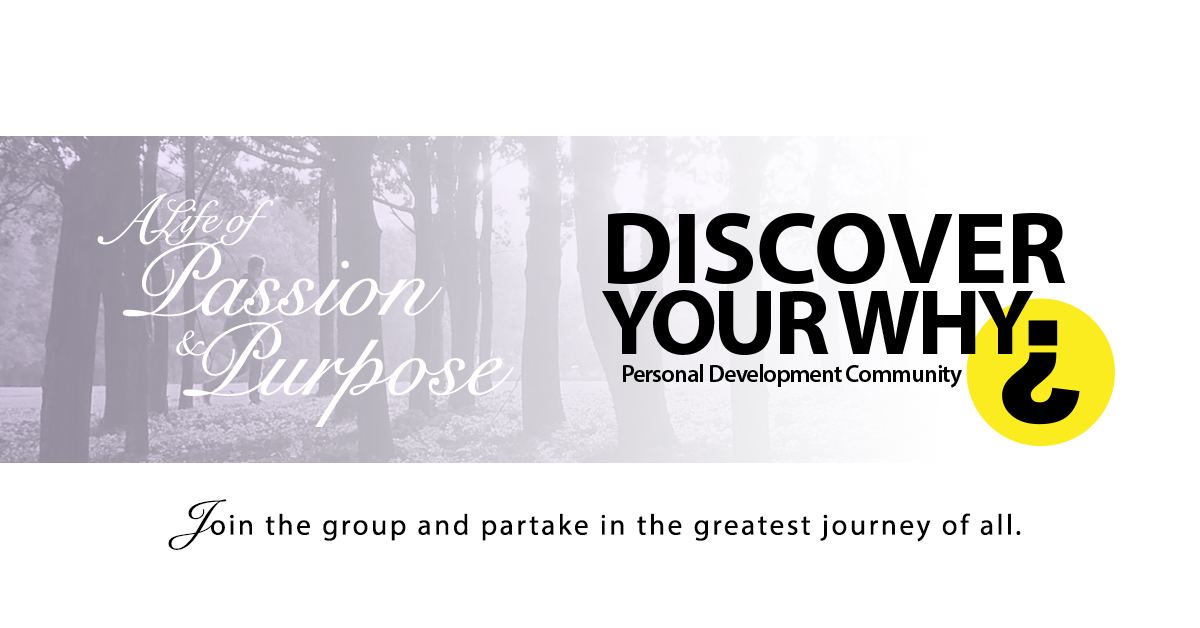
Recently I listened to a podcast by Tim Ferriss on knowing when to quit and when to persevere with something. He had a bunch of special guests report their thoughts and advice to this question, most of which he has interviewed in the past. Have a listen if you haven’t already.
In this article, in parts one and two, I wish to share my thoughts on this question. I may not be as highly regarded as some of the guests on Tim’s show, but I have had my fair share of times when I’ve quit and when I’ve stuck with it. Including times when I should have quit or stuck with but didn’t that have resulted in both favorable and unfavorable outcomes.
I think it is necessary first to determine what it means to quit and what it means to persevere because sometimes the image or definition we attach to words can skew the meaning and affect our thoughts and how we behave.
The word quit has various uses but often the definition most of us would think of immediately would be to ‘stop’ or ‘discontinue.’ I quite like Middle English origins of the word meaning ‘set free.’ Stating that it derives from the Latin word ‘quiescere’ meaning to ‘be still,’ which is kind of what we do when we quit something, we no longer act or move on it.
The word ‘persevere’ means to continue in the course of action even in the face of adversity or difficulty or with little or no indication of success. The origins of this word derive from the word ‘perseveare’ meaning ‘to abide by strictly.’ ‘Per’ meaning ‘thoroughly’ and ‘severare’ or ‘severus’ meaning ‘severe.’
In my personal experience and observation, I think it is fair to say that many of us associate quitting as an indication of failure. And regardless of whether it is ourselves or another, this image of failure is too often used as a representation of our character, to further define our self-identity, to make a judgment, and to make future decisions that can all result in positive and negative effects.
We must rid ourselves of this association. To quit is not to fail! This association between quitting and failure makes us see or feel it as a sign of weakness, but it’s not. It can if we allow it to, decrease our sense of self-worth and be damaging or limiting to personal progression.
It is limiting to our progression because it affects our underlying motivation to try new things in life. It causes a restriction to our desires and narrows the opportunities and paths that may be available to us. Why would we push ourselves towards something that we fear that we may quit? We wouldn’t and we often don’t.
If we base all future decisions and actions on past experiences, which is precisely how the brain works, we are less likely to act on those which we perceive will lead to quitting, failure, ridicule, judgment or pain. Our survival tendencies tell us to move towards pleasure and avoid pain.
The problem is that decisions not to act based on poorly formed concepts or misinterpretations of past experiences or word associations will have us doing what we’ve always done. That will limit progress.
Whatever we start that is new there will be a level of uncertainty. Uncertainty is a natural part of life. The level of uncertainty that exists is based on our past experiences and any new information gathered that will be used to help predict possible futures. The more information and relative experience, the less uncertainty.
It is natural not to like uncertainty due to the fears of approaching the unknown, but this is the best way to form new concepts and have broadening experiences that enhances the information we can use for future endeavours. In facing uncertainty, we create progress. However, for as long as we associate quitting with failure, we will be less inclined to start new projects or adventures. It is an unwanted fear.
“Fear-setting” is a discussion for another day. If interested Tim Ferriss just did a brilliant TED Talk on fear setting that you can watch here.
I think no matter what we do in life we should not approach it with either thought of quitting or failure. I believe it is healthy to understand all possible futures including those that may result in quitting or have other less desirable outcomes because we can then be better prepared. We also must not avoid doing something just because we think we will quit or that we believe we will fail.
We will likely have many failed attempts in life, and that is okay. And for those who don’t fear failure or use it as a reason not to start new things will likely quit more times than they succeed and that actually raises their likelihood of success.
I’d suggest that our education has a large part to play in our association with quitting as a failure. And I think this has just as much impact on our ability to persevere. I wrote an article on that explains the implication on this here – The Roads to Self-Mastery.
In summary, when we are graded poorly we use that as an indication of what we are no good at. Rather than searching for a reason why we failed or scored lower than the average and seeking improvement we quit. We move on to other things, and very quickly we develop a pretty particular definition of what we are good at and what we are not. It determines what we move towards and what we avoid throughout our life. And I am not sure that we should accept this conditioning.
I sucked at English at school, often just scraping by with my grades. For a long time, I used this concept as a reason not to pursue individual paths and opportunities in life. Limiting! If I continued to use this as the basis of my decisions, I wouldn’t be writing this article. In many ways I still am inferior with many aspects of the English language, reading, writing and speaking, but am learning as I go and I continually improve.
It is often easier to quit than to persevere. It is challenging to try figure things out. Unfortunately, this is the kind of mentality we form in school. Both because it is challenging for us to self-learn and for teachers to individualize educational techniques. It is why one on one tutoring is beneficial as is coaching and mentoring. It individualizes the student-teacher relationship allowing greater focus on specific areas of learning difficulty that will benefit the student greatly and achieving what they desire to accomplish.
The association, many of us, have to the idea of persevering is that it will be difficult. We will find it challenging. It links us back to thoughts of quitting or failure, and that prevents action. Here is some dialogue that might sound familiar.
“That’s going to be hard! I might quit. What if I fail? What will people think of me? What happens if I do quit, what then? Will it just be a big waste of my time? I’ve never really been too good at that before, what makes this any different? Perhaps it’s best I just stick with what I know. Why bother.”
The internal voice that guides us yet as it does it often prevents us moving into newer and greater life experiences, and if this is the case, it is a bit of a shame.
Life is all about persevering. It is when we stop walking into the challenge, into the fire, into the adversity that we stop living. We find happiness in the pursuit of life, and if we are not facing a challenge we are not in pursuit. We are not moving.
To persevere is hard. Challenge is unpleasant. Without challenge, we wouldn’t grow, we wouldn’t progress, and we wouldn’t know. And on the other side of all challenge is reward regardless of whether we succeed or not.
With challenge, we learn. We have new experiences. We gain more information that makes future problems that little bit more approachable, not easy, just more friendly. It will reduce the level of fear we have when trying something new leading us to more experiences, more learning, and likely greater success.
However, with all that being said, how do we know when to quit and when to persevere? How do we know what paths to pursue and what to leave alone? The truth is we don’t. We can only improve the decisions we make by being more informed and developing awareness from experience, not inexperience.
To deepen our understanding of our “why” and Life Compass we must act. It will evolve as we proceed. We will quit, and we will persevere, and that is fine. What we must avoid is not taking action towards new and uncertain situation based on poorly formed concepts and interpretations of our past conditioning.
We are better off to embrace uncertainty, discomfort, change and all that is new if we wish to create and live a meaningful life. As we do and as we become more deeply connected with our intuition we will be better able to decide when to quit and when to persevere.
In part two, I will discuss some more practical thoughts that can be applied to our lives to help us better understand when to quit and when to persevere. If nothing else, I hope this article and thought will inspire you to act, encourage and welcome new experiences in life without getting put off with thoughts of quitting, failure or challenge because that is the key to making more internally informed decisions in all aspects of life moving forward. And that is the key to living the Ultimate Life.
FIND YOUR HIDDEN WHY with THE HIDDEN WHY (THW)
BUILD YOUR LIFE AROUND YOUR PASSION AND LIVE WITH PURPOSE
Sign up for free below and receive cool stuff from me each week + Plus a free copy of “The Four Pillars of Success”
In my weekly emails you will receive ideas, thoughts, learning’s and inspiration on:
- How to design a life that you want and live by your terms
- How to live a life with passion & purpose
- Methods, strategies, & techniques on life hacks
- Messages on how to better live your life
- We will also keep you up to date with fantastic interviews from THW podcast













Leave a Reply